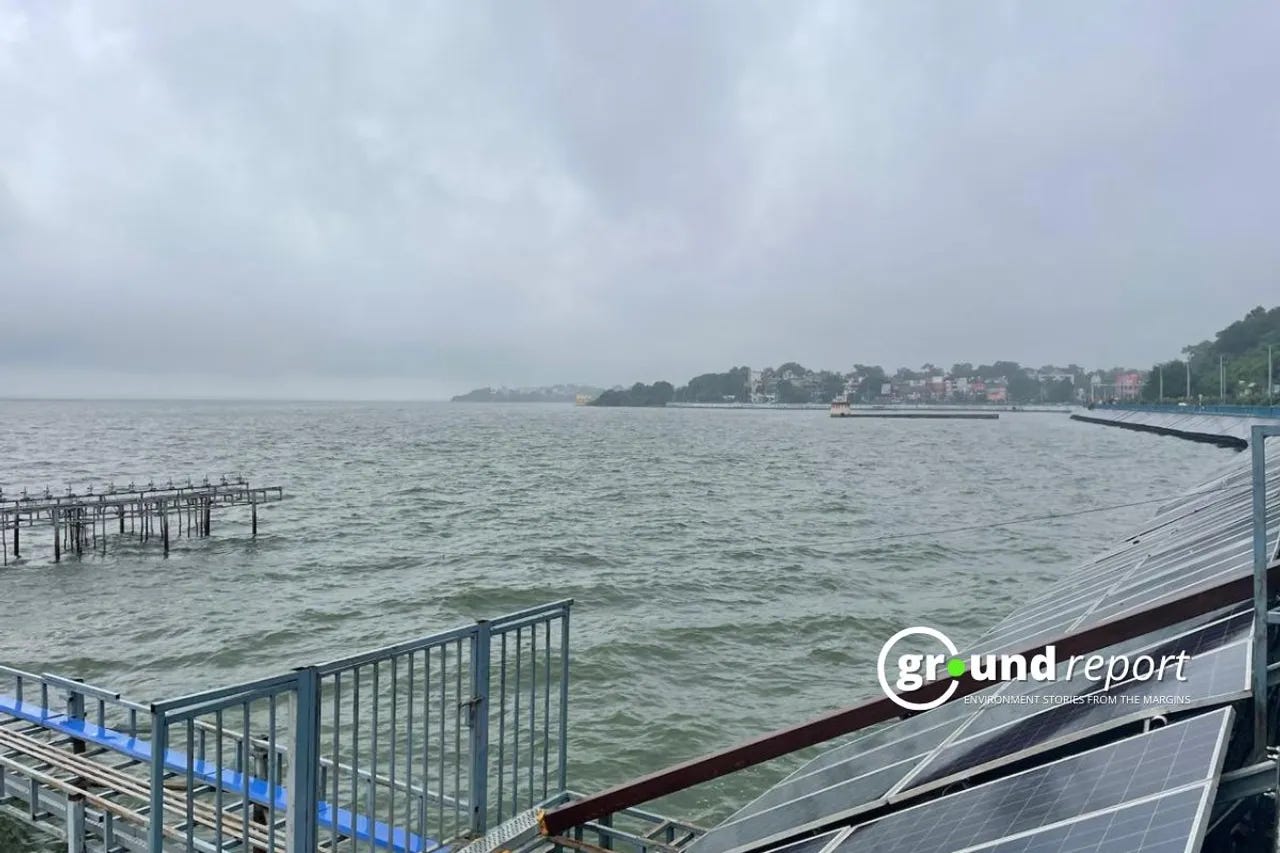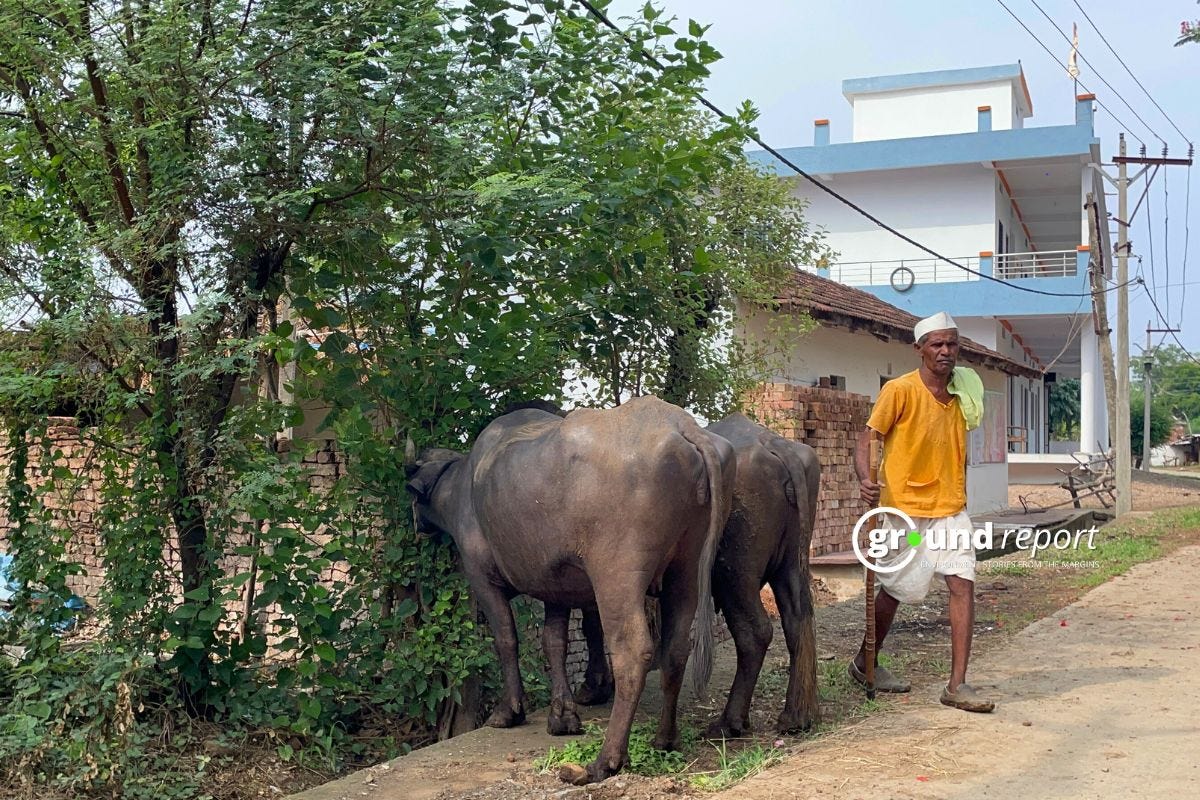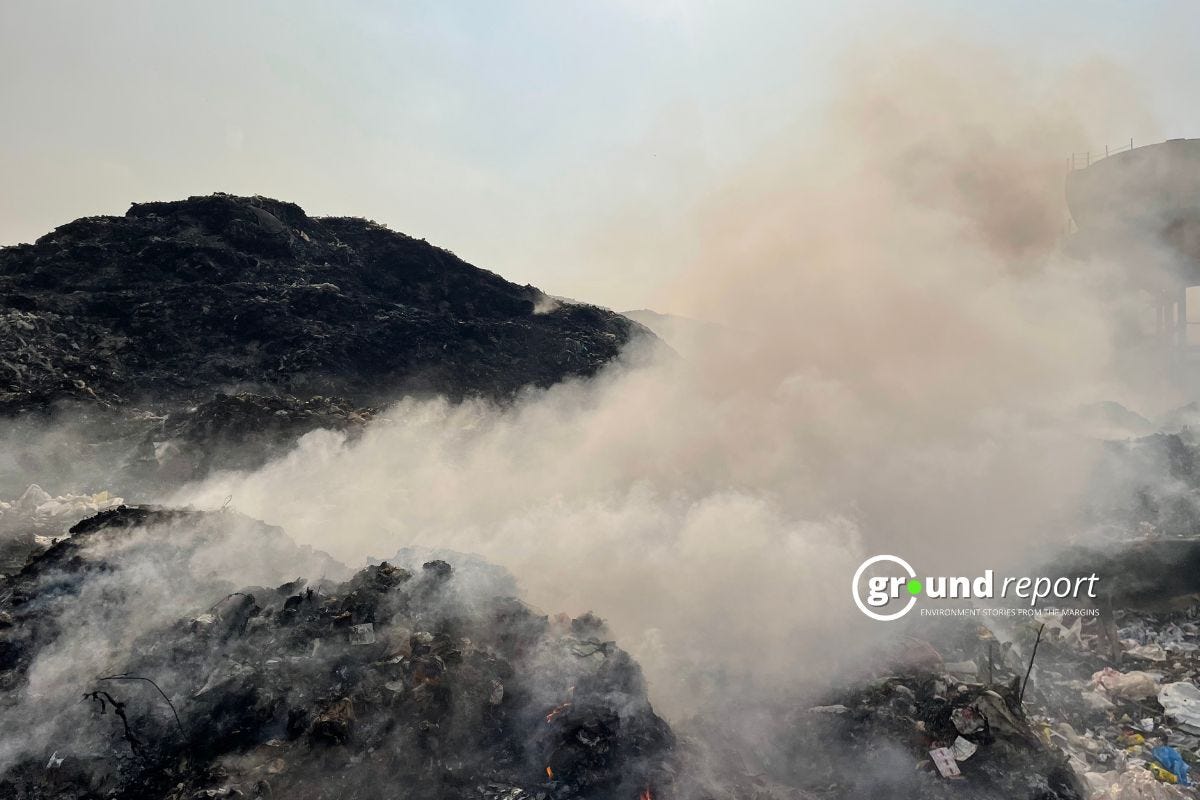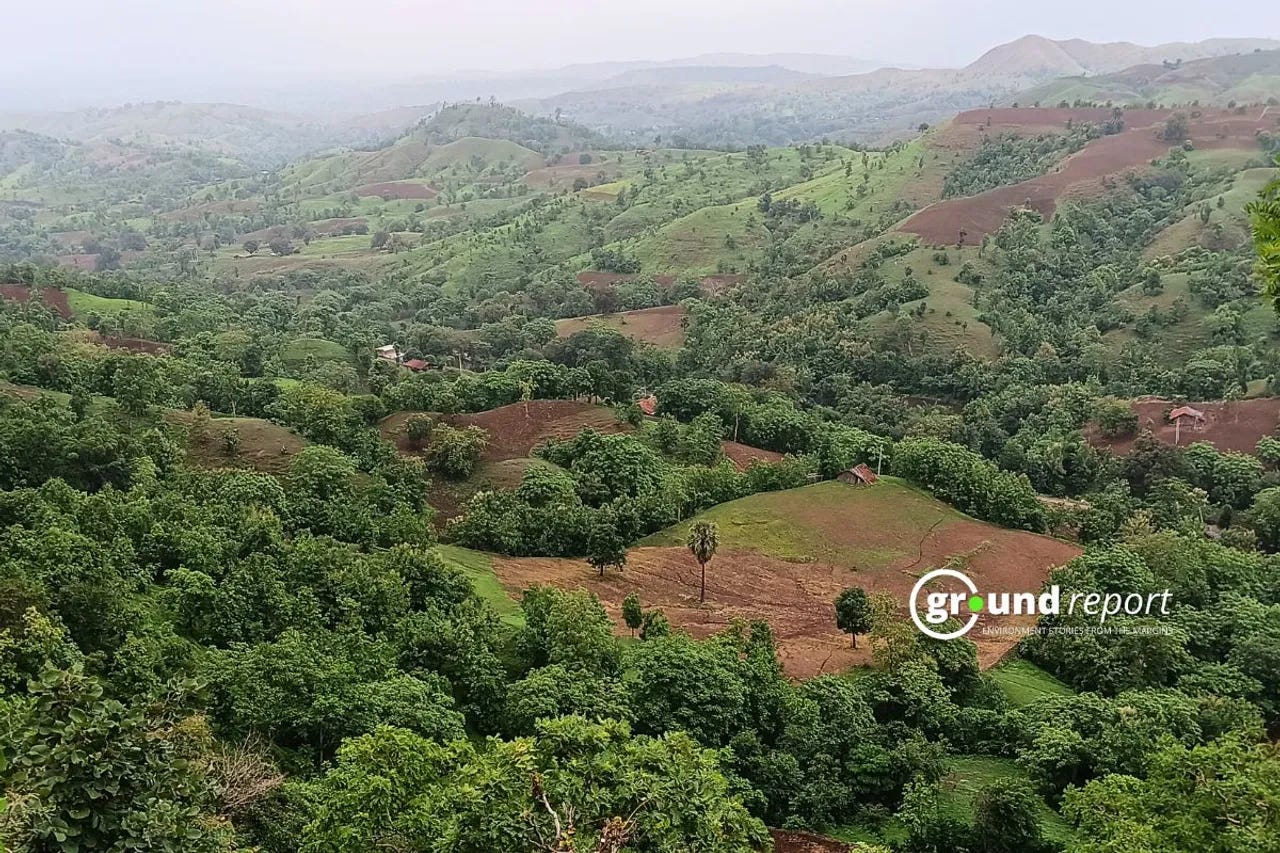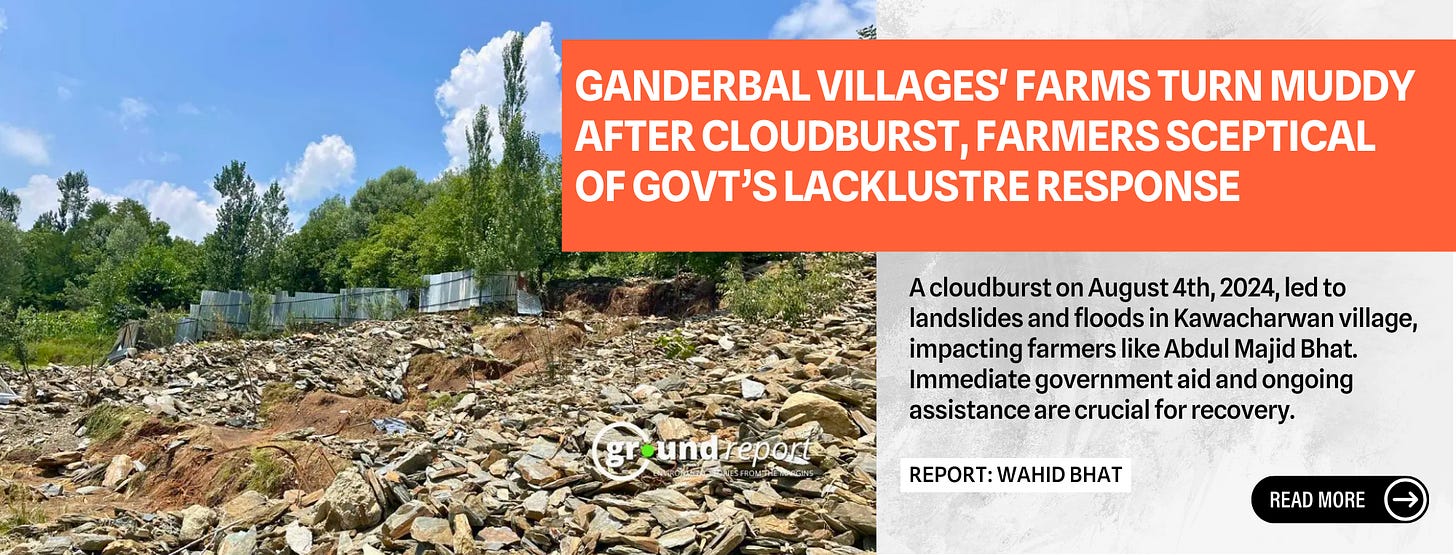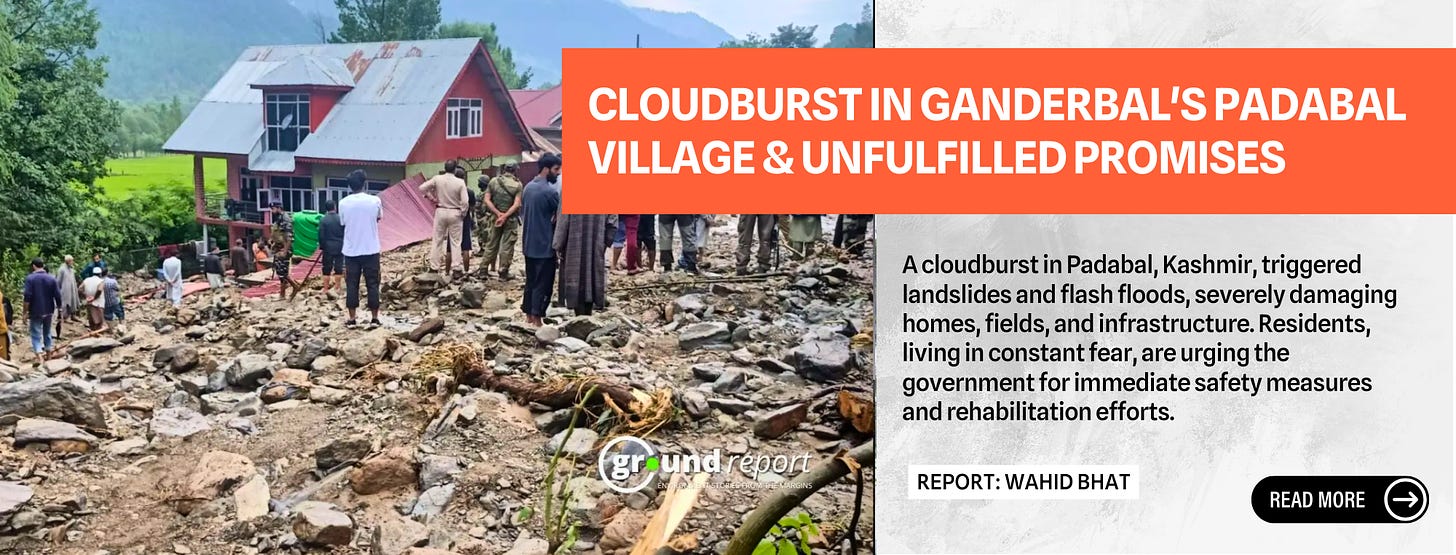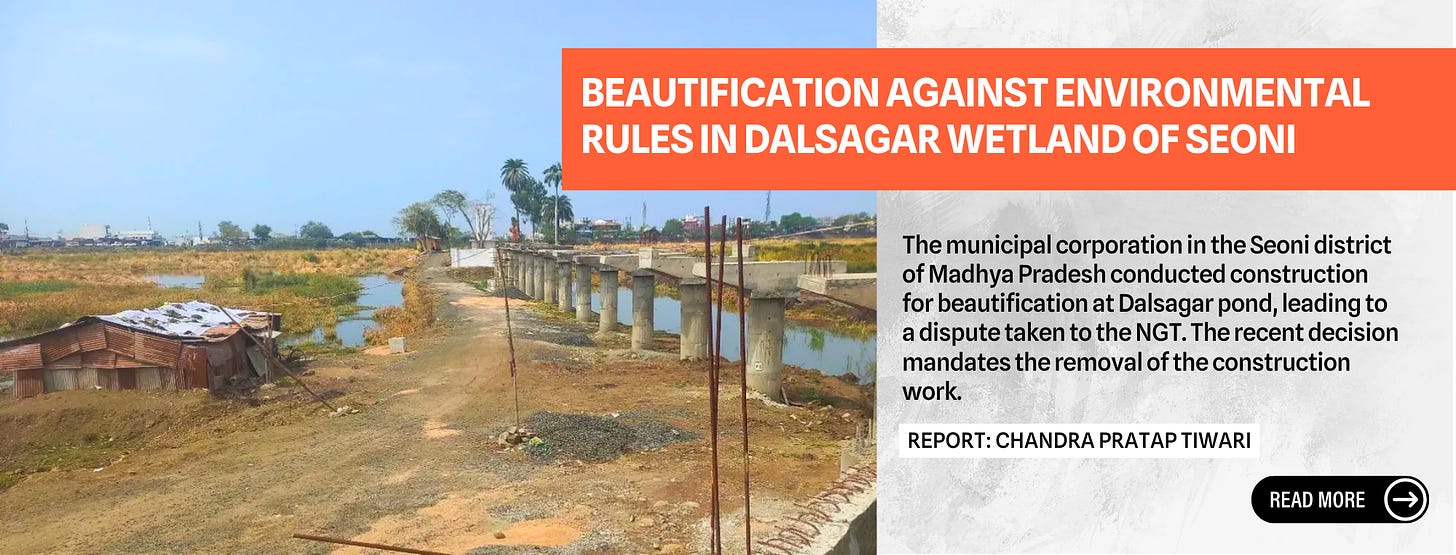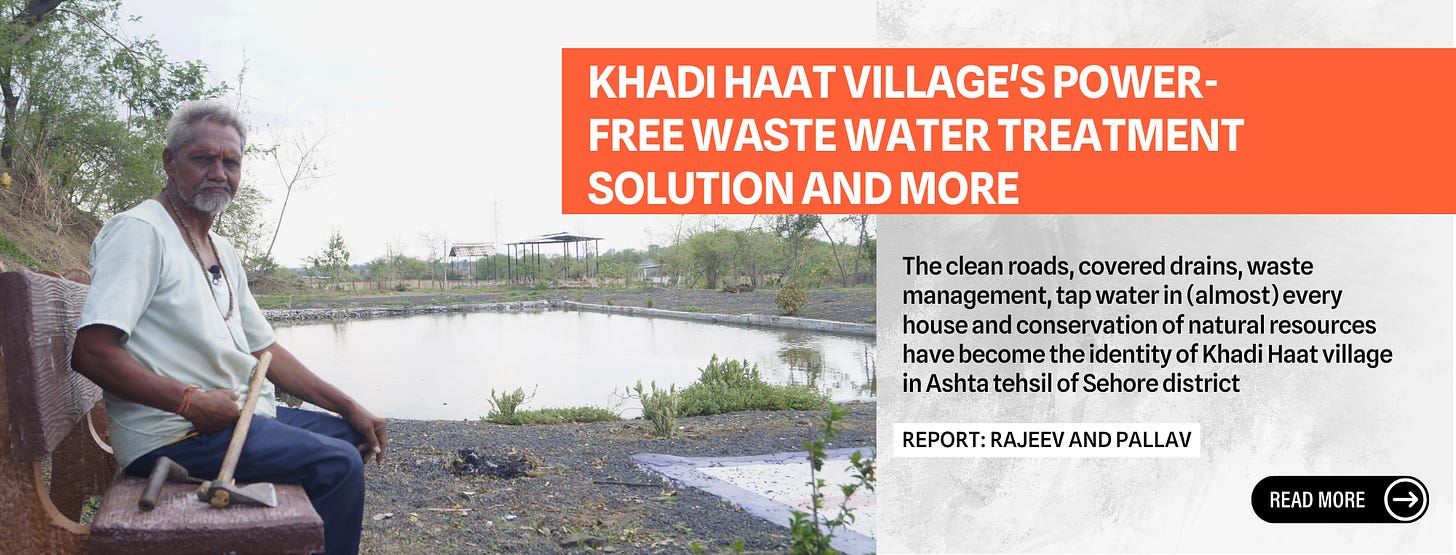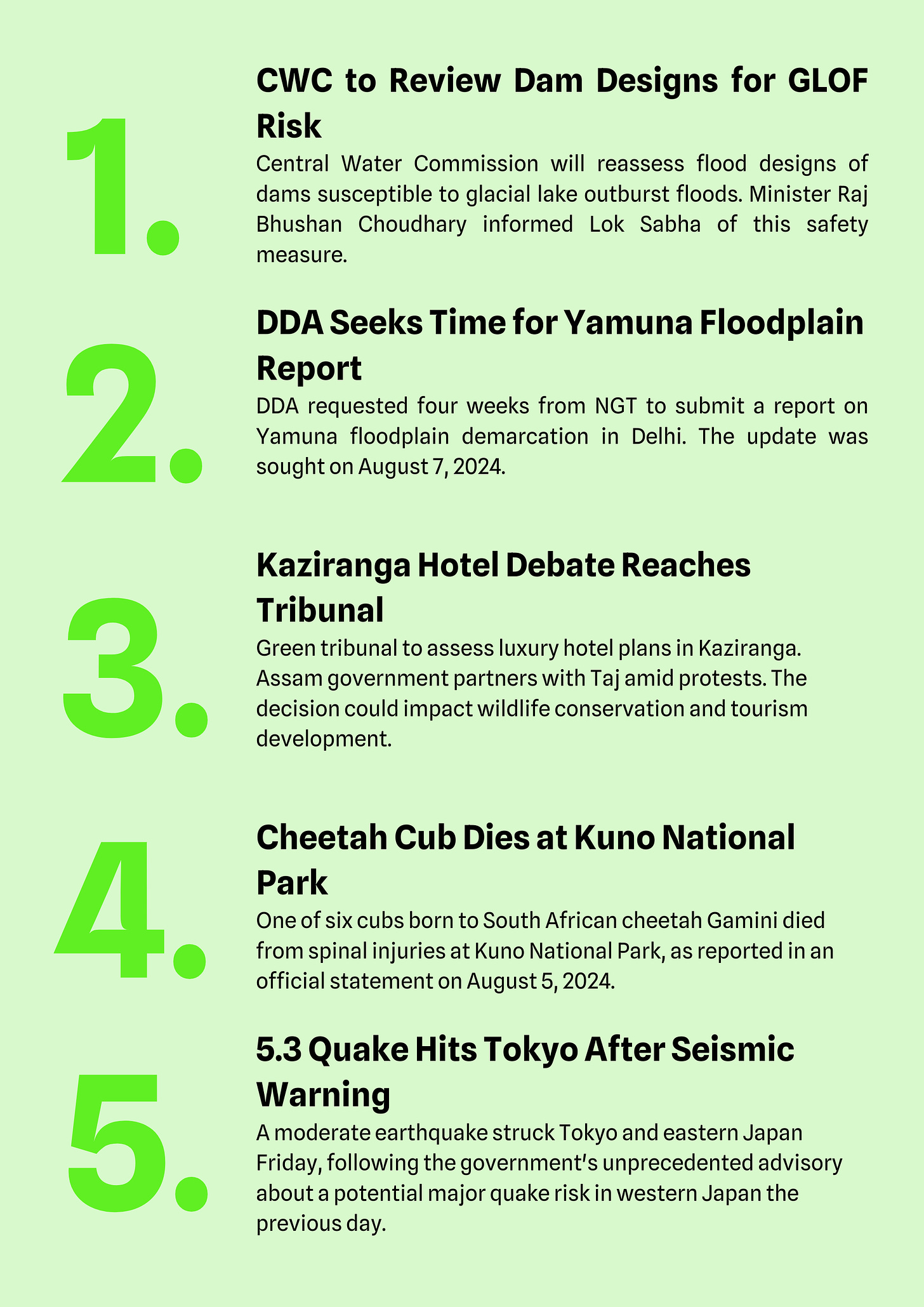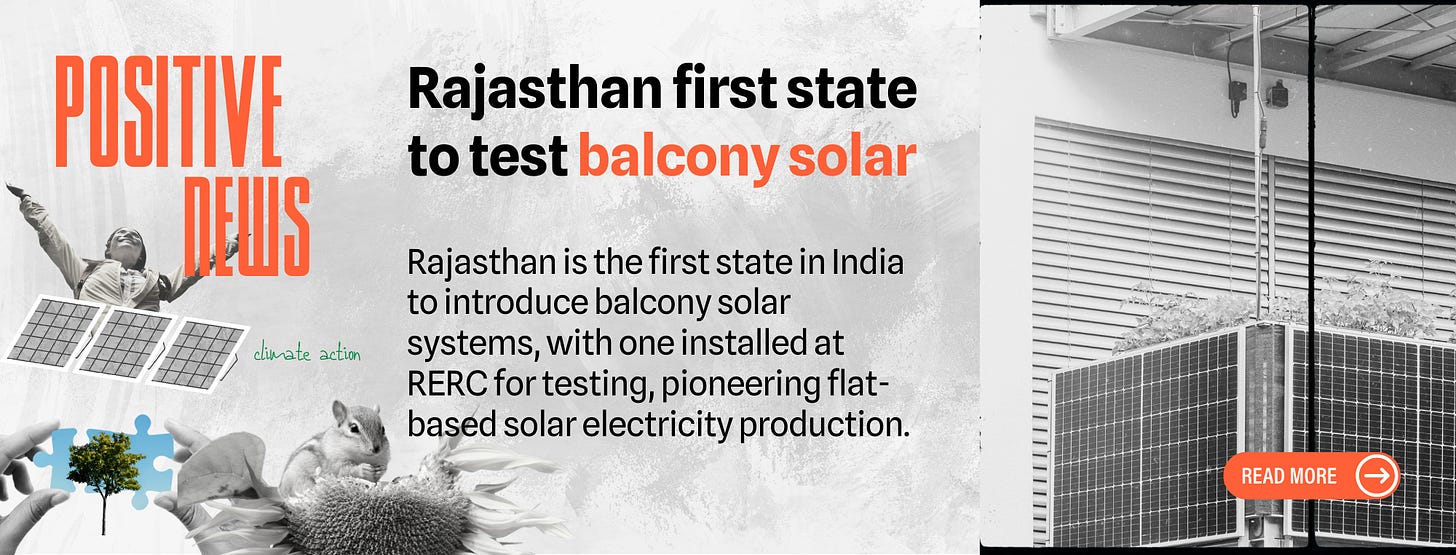Environmental questions from current parliament session
Ground Report is providing valuable environmental news and insights. If you’ve found our content useful, we kindly request that you donate to environmental journalism.
Hi everyone! Wahid Bhat here! Welcome to another edition of our newsletter. The Parliament session started on July 22 and will end on August 12. We’ve been closely following the discussions and debates. In today’s newsletter, we’ll examine the questions and answers related to climate change, renewable energy, agriculture, and other environmental topics highlighted in this session.
In a well-functioning democracy, parliamentary questions (PQs) are vital for transparency, particularly in climate change policy space. India, the largest democracy and most vulnerable to climate change, lacks PQs on climate change.
Despite an increase in recent years… there’s room for growth!
Adding to the growth, in the recent parliament session, numerous environmental issues were discussed. Key areas included the impact of climate change on agriculture, the utilization of funds for air quality improvement, and the expansion of green energy initiatives.
Some of the topics discussed in Parliament are:
Bhoj Wetland Threats
Heatwaves and Heat Stroke Deaths
Agricultural Household Earnings
Losses Due to Climate Disasters in Northeast India
National Clean Air Programme (NCAP) Fund Utilization
Hydropower Projects in the Western Ghats
Forest Land Diversion for Non-Forestry Purposes
Now, we will look at these important questions and answers in Parliament.
Bhoj Wetland in Bhopal
In the ongoing Parliament session, concerns about the Bhoj Wetland in Bhopal were raised in the Lok Sabha. The Government of India clarified that the Bhoj Wetland is not at risk of being delisted from the Ramsar Convention list.
The Minister of State in the Ministry of Environment, Forest, and Climate Change, Kirti Vardhan Singh, stated that the Ministry, along with the Madhya Pradesh State Wetland Authority, has been implementing measures to conserve and manage the wetland, including enforcing the Wetlands (Conservation and Management) Rules, 2017. The Ministry sanctioned ₹432.03 lakhs in 2018-2019 for conserving Bhoj Wetland in Bhopal, releasing ₹200.00 lakhs.
Earlier, we reported that Bhoj Wetland in Bhopal, a Ramsar site since 2002, faces urbanization threats and declining biodiversity. Read the full story [here].
Heatwaves and Heat Stroke Deaths
On the question of fatalities due to heatwaves by Rajya Sabha members Rajni Ashokrao Patil and Ranjeet Ranjan, the Minister of State for Science and Technology and Earth Sciences, Jitendra Singh, reported that 1,274 people died due to heatwaves in 2019 across 28 states and 8 Union Territories. However, the situation is much more stark.
In 2020, deaths decreased to 530, 374 in 2021, and 730 in 2022 across 36 states and UTs. Rajya Sabha members asked about compensation plans for victims, steps to counter heatwaves, and considering declaring heatwaves a national calamity.
Our Desk team highlighted that a recent analysis by Climate Central revealed nearly five billion people worldwide, including 619 million in India, faced extreme heat due to climate change over nine days in June this year. Read the full story [here].
Agricultural Household Earnings
Moving on to the agricultural sector, the government informed the Lok Sabha that, according to the Periodic Labour Force Survey (PLFS) by the National Sample Survey Office (NSSO), 45.76% of all workers were employed in the agricultural and related sectors during 2022–2023. This data highlights a shift, as more people are moving away from agriculture, with the average size of household ownership holdings decreasing from 0.725 hectares in 2003 to 0.512 hectares in 2019.
The government shared findings from the Situation Assessment Surveys (SAS) of Agricultural Households, revealing that the average monthly income rose from ₹6,426 in 2012–13 to ₹10,218 in the 2018–19 survey, which was released in 2021. However, since the data presented in Parliament is from 2019 and was released in 2021, this raises concerns about the lack of updated information on farmers' income.
Our reporter Jyotsna Richhariya reported on it and she spoke to experts like Ashish Gupta, a former FAO member, who believes this income remains alarmingly low compared to inflation. Read the full story [here].
Utilization of Funds for NCAP
Turning to air quality, the government informed the Lok Sabha that the National Clean Air Programme (NCAP), initiated in January 2019, aims to improve air quality in 131 cities across 24 states and territories. The goal of reducing particulate matter (PM) by 20–30% by 2024 has been revised to 40% by 2026.
Our reporter Jyotsna Richhariya spoke to experts who emphasized the need for a balanced approach in the National Clean Air Programme, noting that only 0.61% of funds are allocated to controlling industrial pollution, while most resources focus on dust control. Read the full story [here].
Hydropower Projects in the Western Ghats
Regarding hydropower projects, the government informed the Lok Sabha that preliminary approvals were granted for three large hydropower projects in the Ecologically Sensitive Areas (ESA) of the Western Ghats, based on recommendations from the High-Level Working Group on Western Ghats. The Ministry of Environment, Forest, and Climate Change (MoEF&CC) issued a memorandum in December 2013 allowing hydropower projects in the Western Ghats ESA under strict conditions, replacing an earlier directive.
Like this year in February, we reported how the Indian government granted preliminary approvals for Adani’s hydropower projects in the ecologically sensitive Western Ghats, raising serious concerns about potential ecological damage and legal violations in one of the world's most biodiverse regions. Read the full story [here].
Forest Land Diversion For Non-Forestry Purposes
Lastly, the government informed the Lok Sabha that 95,724.99 hectares of forest land had been approved for diversion to non-forestry purposes between April 2019 and March 2024. 421 projects were approved in National Parks and Wildlife Sanctuaries, reflecting developmental activity in ecologically sensitive areas.
These projects underwent Environmental Impact Assessments to balance development with environmental protection. Over the past five years, 142,573 hectares of compensatory afforestation have been completed nationwide, with ₹25,550.25 crores spent.
Last year, the government revealed that over three lakh hectares of forest land had been diverted for non-forestry purposes in the past 15 years. The amendment to the Forest (Conservation) Act has raised concerns about potential ecological risks and impacts on forest-dependent communities. Read the full story [here].
Losses Due to Climate Disasters in Northeast India
The Ministry of Home Affairs informed the Rajya Sabha that state-specific data on natural disaster damage is not centrally maintained. However, reports indicate that hydrometeorological disasters in Northeast India have resulted in 212 human and 3,148 cattle deaths. Read the full story [here].
The parliamentary discussions in this session underscore the ongoing balancing act between development and environmental conservation in India. From the significant loss of life due to heatwaves to the critical issues facing our agricultural sector, wetlands, and forest lands, it's clear that while progress has been made, there are still many challenges ahead.
Ground Reports
5 Environmental stories you might have missed
Positive News
Video Report
Solar Pumps Transforming Lives of Bihar's Women Farmers, Report by Diwash Gahatraj
Janaki Devi, Anu Devi, and Usha Devi have more in common than just their last name—they share a profession. Three women, along with over 30 others, sell irrigation water powered by solar pumps. Mostly living in the Muzaffarpur district of Bihar, they have transitioned from being housewives to entrepreneurs. Read this report in detail here.
That’s all for today’s. If you found these stories interesting and want to stay updated, don’t forget to subscribe to our newsletter. You can also follow the Ground Report for Environment and Under-Reported Issues in India. Connect with us on Facebook, Twitter, Koo App, Instagram, WhatsApp, and YouTube. Write to us at GReport2018@gmail.com.
Stay tuned for more updates on this unfolding story. Until next time, this is Wahid Bhat signing off! That is for today See you next week and make sure to share your feedback with us and share this newsletter with your friends.






